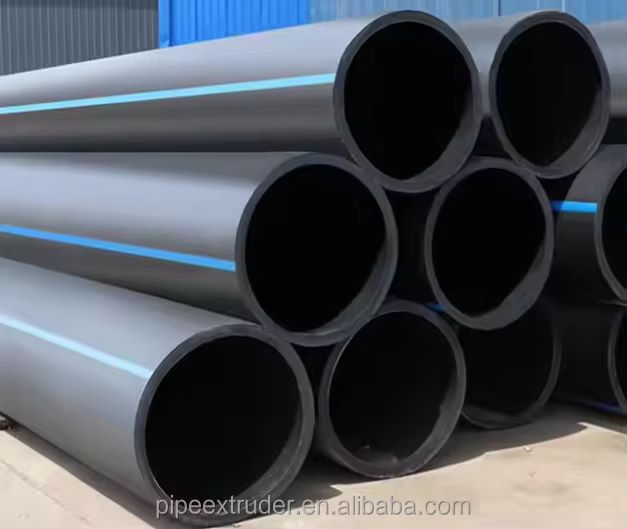Applicable industries of HDPE pipe welding machine
2025-06-23
HDPE (High-Density Polyethylene) pipe welding machines are essential tools in various industries that require durable and reliable piping systems. These machines are designed to fuse HDPE pipes together using heat and pressure, creating strong, leak-proof joints. The versatility and strength of HDPE make it ideal for numerous applications. Below are some of the key industries where HDPE pipe welding machines are widely used.
1. Construction Industry
In the construction industry, HDPE pipes are commonly used for water distribution, drainage systems, and sewage lines. The ability to fuse HDPE pipes with welding machines ensures that the pipes remain durable, leak-proof, and resistant to corrosion, making them ideal for underground installations. The welding process also allows for seamless connections, reducing the chances of pipe failures or water leakage, which are common issues in traditional pipe joining methods such as threading or gluing.
2. Oil and Gas Industry
The oil and gas industry requires a highly reliable and strong piping system to transport crude oil, natural gas, and other related fluids. HDPE pipes are corrosion-resistant, which makes them an excellent choice for offshore and onshore pipelines. HDPE pipe welding machines enable the creation of continuous, leak-free pipelines for transporting these substances safely and efficiently over long distances. The ability to withstand high pressures and harsh environmental conditions further enhances the application of HDPE in this sector.
3. Water and Wastewater Management
Water treatment plants, sewage treatment facilities, and stormwater management systems heavily rely on HDPE pipes for transporting both clean and wastewater. HDPE is resistant to chemical corrosion, which is vital in wastewater management systems, where pipes come in contact with various chemicals and contaminants. The welding process ensures a leak-proof, long-lasting, and maintenance-free pipeline, which is crucial for preventing environmental contamination and ensuring the safety of the water supply.
4. Agricultural Industry
In agriculture, HDPE pipes are used for irrigation systems, drainage, and other water-related applications. The flexibility and durability of HDPE make it an excellent choice for both surface and subsurface irrigation networks. HDPE pipe welding machines allow for the efficient connection of pipes over long distances, ensuring a continuous flow of water to crops. Additionally, since HDPE pipes are resistant to root intrusion and chemicals in the soil, they provide a long-lasting and efficient solution for agricultural irrigation systems.
5. Mining Industry
Mining operations often require robust piping systems to transport slurry, water, and chemicals. HDPE pipes are a common solution in this sector due to their high resistance to abrasion and corrosion. In mines, where pipelines are exposed to harsh conditions, including chemicals, extreme temperatures, and abrasive materials, HDPE pipes can withstand the environment while maintaining their structural integrity. Welding machines are used to join the pipes into large, continuous networks that can safely transport materials within the mining facility.
6. Telecommunication Industry
In the telecommunications sector, HDPE pipes are frequently used for the installation of underground cables and fiber optics. The pipes protect sensitive cables from environmental damage, such as moisture, chemicals, and physical impact. The ease and efficiency of HDPE pipe welding ensure that the pipes are properly sealed, preventing damage to the cables and ensuring their longevity. The lightweight nature of HDPE also makes it easier to handle and install, especially in remote or hard-to-reach areas.

7. Energy and Power Generation
Energy plants, especially those involved in geothermal, solar, and hydropower, rely on HDPE pipes for a variety of applications, including cooling systems and transporting water. The heat resistance of HDPE, coupled with its durability, makes it a suitable option for carrying water used in power generation processes. The welding of HDPE pipes ensures the integrity of long-distance water or coolant transport systems, which are critical to maintaining the efficiency and safety of power plants.
8. Automotive Industry
In the automotive sector, HDPE pipes are used in fuel systems, cooling circuits, and hydraulic lines due to their flexibility, resistance to temperature variations, and high chemical resistance. Welding machines are used to join pipes within vehicles, ensuring that fuel and coolant flows are efficient and leak-free. The ability to make seamless connections improves the reliability of the automotive systems and contributes to the overall safety of the vehicle.
Conclusion
HDPE pipe welding machines have found widespread applications across multiple industries due to the advantages of HDPE pipes, such as corrosion resistance, durability, and flexibility. These machines ensure the efficient and reliable joining of pipes, reducing the risks of leakage, ensuring safety, and enhancing the overall longevity of piping systems. From construction and oil and gas to agriculture and telecommunications, the demand for HDPE pipe welding technology continues to grow, cementing its place as an indispensable tool in modern infrastructure development.
As a professional manufacturer and supplier, we provide high-quality products. If you are interested in our products or have any questions, please feel free to contact us.